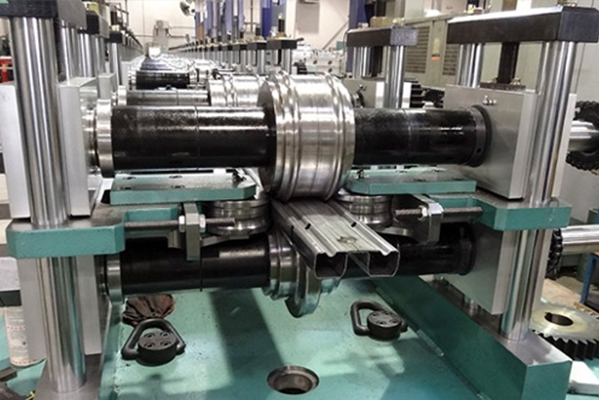Navigation Menu
Contact Us
- Email:
- info@wxavatar.com
- Address:
- Yurong Village, Yuqi Street, Huishan District, Wuxi, China.
Release Date:Mar 12, 2025 Visit:84 Source:Roll Forming Machine Factory
Automotive manufacturing is the backbone of the global transportation industry, responsible for designing, producing, and assembling the vehicles that power our daily lives. From compact cars to heavy-duty trucks, this industry plays a pivotal role in shaping modern mobility. But what exactly does automotive manufacturing do? It encompasses a wide range of activities, from transforming raw materials into finished vehicles to integrating cutting-edge technologies that define the future of transportation. Let’s explore the key functions and contributions of this dynamic industry.
1. Transforming Raw Materials into Vehicles
At its core, automotive manufacturing is about converting raw materials like steel, aluminum, plastics, and rubber into functional vehicles. This process involves precision engineering, advanced machinery, and skilled labor. Through stamping, welding, painting, and assembly, manufacturers create the body, engine, transmission, and other critical components that make up a vehicle. The ability to efficiently produce high-quality vehicles is a hallmark of automotive manufacturing.
2. Integrating Advanced Technologies
Modern automotive manufacturing is not just about building vehicles; it’s about integrating advanced technologies that enhance performance, safety, and sustainability. From electric powertrains and autonomous driving systems to connected car technologies, manufacturers are at the forefront of innovation. These advancements are reshaping the automotive landscape, making vehicles smarter, cleaner, and more efficient.
3. Ensuring Quality and Safety
One of the primary responsibilities of automotive manufacturing is to ensure that every vehicle meets stringent quality and safety standards. This involves rigorous testing and inspection at every stage of production. Crash tests, durability assessments, and performance evaluations are conducted to ensure that vehicles are safe for consumers and compliant with global regulations. Quality control is a cornerstone of automotive manufacturing, ensuring reliability and customer satisfaction.

4. Driving Economic Growth
Automotive manufacturing is a major driver of economic growth, creating millions of jobs worldwide. From factory workers and engineers to supply chain managers and sales professionals, the industry supports a vast ecosystem of employment. Additionally, it contributes significantly to national GDPs and fosters innovation in related sectors, such as electronics, materials science, and logistics.
5. Promoting Sustainability
As environmental concerns grow, automotive manufacturing is increasingly focused on sustainability. Manufacturers are adopting eco-friendly practices, such as using recycled materials, reducing energy consumption, and minimizing waste. The shift toward electric vehicles (EVs) and hybrid models is a testament to the industry’s commitment to reducing carbon emissions and combating climate change. Sustainability is now a key priority in automotive manufacturing.
6. Meeting Consumer Demands
Automotive manufacturing is deeply attuned to consumer preferences and market trends. Whether it’s designing fuel-efficient cars, luxury SUVs, or rugged trucks, manufacturers strive to meet the diverse needs of their customers. Customization options, advanced infotainment systems, and ergonomic designs are just a few ways the industry caters to consumer demands. Understanding and anticipating market trends is a critical function of automotive manufacturing.
7. Supporting Global Supply Chains
The automotive manufacturing industry relies on a complex global supply chain to source materials and components. From batteries for electric vehicles to semiconductors for advanced driver-assistance systems (ADAS), manufacturers collaborate with suppliers worldwide. This interconnected network ensures the timely delivery of high-quality parts, enabling efficient production and innovation.
Conclusion
In essence, automotive manufacturing is a multifaceted industry that does far more than just build cars. It transforms raw materials into sophisticated vehicles, integrates cutting-edge technologies, ensures safety and quality, drives economic growth, promotes sustainability, and meets evolving consumer demands. As the industry continues to evolve, automotive manufacturing will remain at the forefront of innovation, shaping the future of transportation and mobility for generations to come.